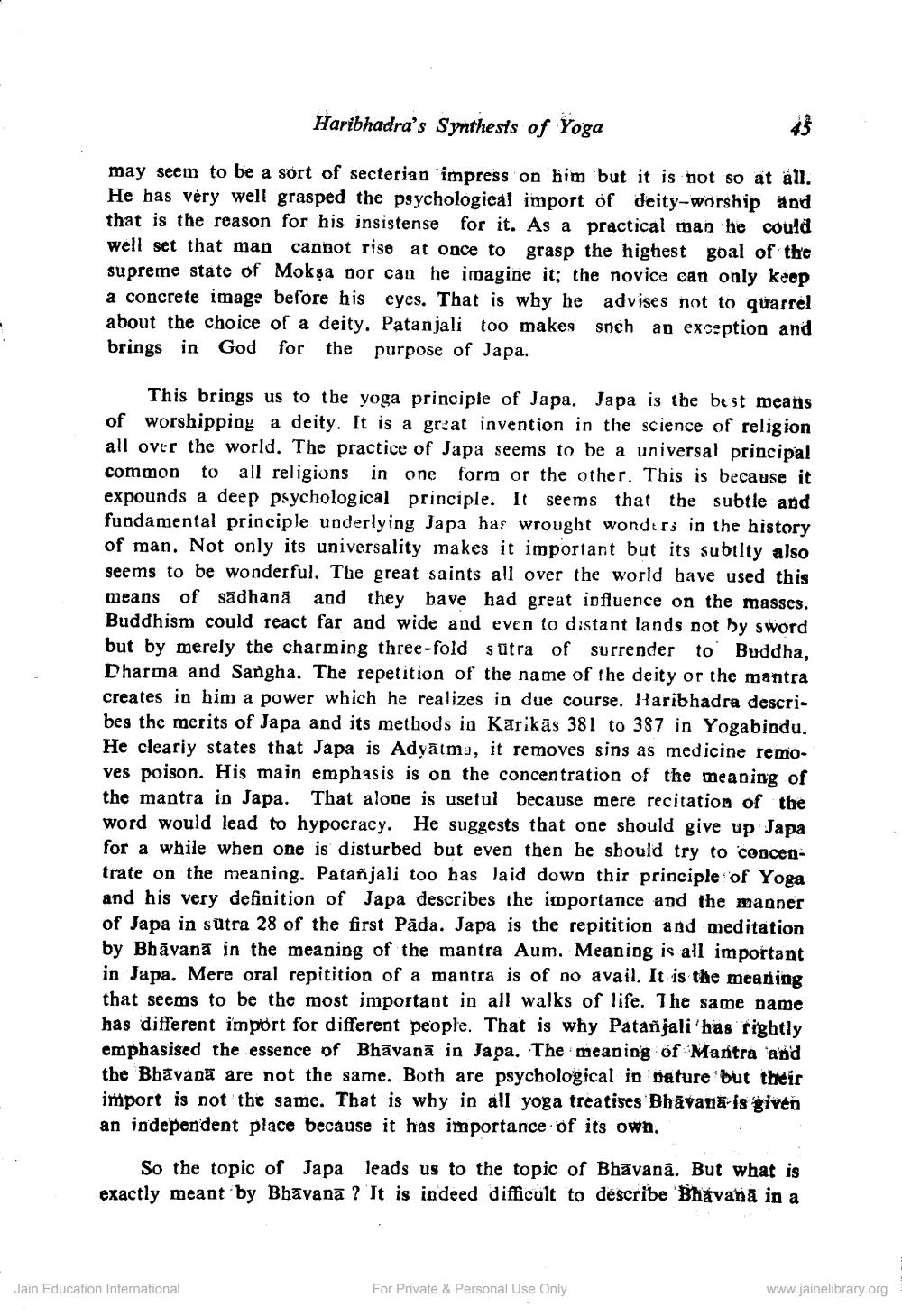________________
Haribhadra's Synthesis of Yoga
may seem to be a sort of secterian impress on him but it is not so at all. He has very well grasped the psychological import of deity-worship and that is the reason for his insistense for it. As a practical man he could well set that man cannot rise at once to grasp the highest goal of the supreme state of Moksa nor can he imagine it; the novice can only keep a concrete image before his eyes. That is why he advises not to quarrel about the choice of a deity. Patanjali too makes sneh an exception and brings in God for the purpose of Japa.
This brings us to the yoga principle of Japa, Japa is the best means of worshipping a deity. It is a gr:at invention in the science of religion all over the world. The practice of Japa seems to be a universal principal common to all religions in one form or the other. This is because it expounds a deep psychological principle. It seems that the subtle and fundamental principle underlying Japa has wrought wonders in the history of man. Not only its universality makes it important but its subtlty also seems to be wonderful. The great saints all over the world have used this means of sādhanā and they bave had great influence on the masses. Buddhism could react far and wide and even to distant lands not hy sword but by merely the charming three-fold sutra of surrender to Buddha, Dharma and Sangha. The repetition of the name of the deity or the mantra creates in him a power which he realizes in due course. Haribhadra describes the merits of Japa and its methods in Karikās 381 to 387 in Yogabindu. He cleariy states that Japa is Adyāıma, it removes sins as medicine removes poison. His main emphasis is on the concentration of the meaning of the mantra in Japa. That alone is useful because mere recitation of the word would lead to hypocracy. He suggests that one should give up Japa for a while when one is disturbed but even then he should try to concentrate on the meaning. Patañjali too has Jaid down thir principle of Yoga and his very definition of Japa describes the importance and the manner of Japa in sutra 28 of the first Päda. Japa is the repitition and meditation by Bhāvana in the meaning of the mantra Aum. Meaning is all important in Japa. Mere oral repitition of a mantra is of no avail. It is the meaning that seems to be the most important in all walks of life. The same name has different import for different people. That is why Patañjali 'has rightly emphasised the essence of Bhāvanā in Japa. The meaning of Mantra and the Bhavana are not the same. Both are psychological in Dature but their import is not the same. That is why in all yoga treatises Bhāvana is given an independent place because it has importance of its own.
So the topic of Japa leads us to the topic of Bhāvanā. But what is exactly meant by Bhāvanā ? It is indeed difficult to describe Bhavana in a
Jain Education International
For Private & Personal Use Only
www.jainelibrary.org




